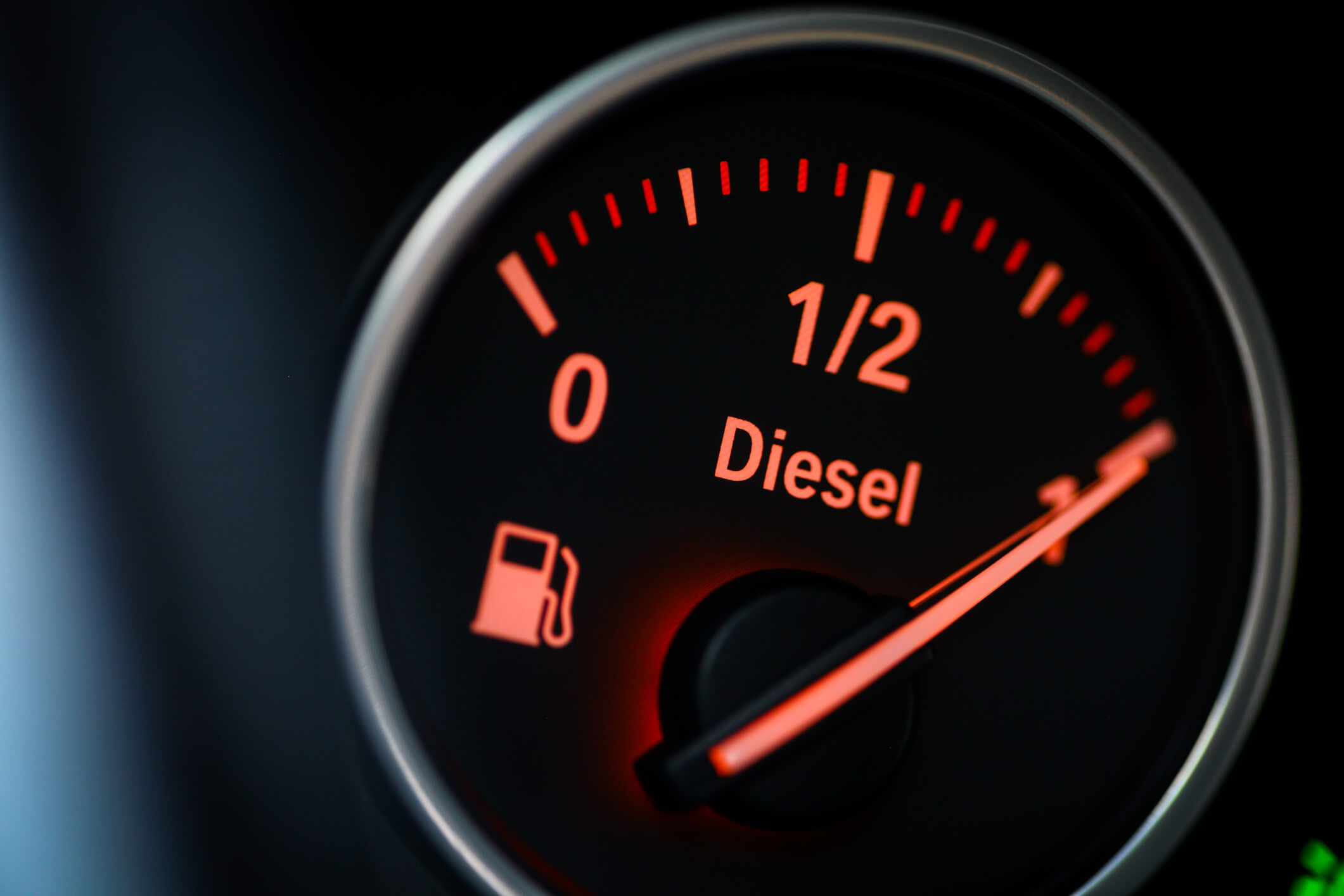Diesel Pickup Trucks: The Ultimate Guide to Power, Durability, and Performance pickup.truckstrend.com
Introduction: The Unrivaled Workhorse of the Road
When it comes to raw power, enduring reliability, and exceptional towing capabilities, few vehicles can rival the mighty diesel pickup truck. More than just a means of transport, these robust machines are purpose-built workhorses, designed to tackle the toughest jobs, haul the heaviest loads, and endure millions of miles with unwavering performance. For farmers, contractors, tradespeople, RV enthusiasts, and anyone who demands serious capability from their vehicle, a diesel pickup isn’t just a choice; it’s an indispensable tool. This comprehensive guide will delve into the world of diesel pickup trucks, exploring what sets them apart, their myriad benefits, crucial considerations for ownership, and practical advice to help you navigate this powerful segment of the automotive market.
Diesel Pickup Trucks: The Ultimate Guide to Power, Durability, and Performance
What Makes a Diesel Pickup Unique? Understanding the Core Differences
At the heart of every diesel pickup lies its distinctive diesel engine, fundamentally different from its gasoline counterparts. While gasoline engines rely on spark plugs to ignite a fuel-air mixture, diesel engines compress air to such high temperatures that fuel injected into the cylinder ignites spontaneously. This fundamental difference leads to several key characteristics:
- Torque Dominance: Diesel engines are renowned for producing significantly more low-end torque than similarly sized gasoline engines. This immense rotational force is precisely what enables diesel trucks to pull incredibly heavy loads from a standstill with ease, making them superior for towing and hauling.
- Fuel Efficiency: Due to the higher energy density of diesel fuel and the inherently more efficient combustion process (higher compression ratios), diesel trucks generally offer better fuel economy, especially when under load.
- Durability and Longevity: Built with heavier-duty components to withstand higher compression pressures, diesel engines are typically more robust and designed for longer lifespans, often reaching 300,000 miles or more with proper maintenance.
- Engine Braking: Many diesel trucks feature exhaust brakes or integrated engine braking systems, which use engine compression to slow the vehicle down, reducing wear on the service brakes, especially when descending hills with heavy loads.

The Undeniable Benefits of Owning a Diesel Pickup
The unique characteristics of diesel engines translate directly into a compelling list of advantages for owners:
Superior Towing and Hauling Capacity
This is arguably the primary reason people choose diesel. Their high torque output allows them to effortlessly pull large travel trailers, fifth-wheel campers, heavy equipment, and commercial loads that would strain or overwhelm gasoline trucks.
Enhanced Fuel Economy (Especially Under Load)

While diesel fuel often costs more per gallon, the improved miles per gallon (MPG), particularly when towing or carrying heavy loads, often results in lower overall fuel costs for those who frequently work their trucks.
Exceptional Durability and Longevity
The robust construction of diesel engines means they can withstand more stress and typically outlast gasoline engines, offering a lower cost of ownership over the long term and higher reliability for demanding tasks.
Higher Resale Value
Due to their durability, longevity, and high demand from buyers needing serious capability, diesel pickup trucks tend to retain their value better than their gasoline equivalents, leading to a stronger return on investment.

Ideal for Commercial and Heavy-Duty Use
For businesses, the ability to consistently tow maximum loads, operate reliably for long hours, and deliver better fuel efficiency under those conditions makes diesel pickups an economic and practical necessity.
Key Considerations Before Buying a Diesel Pickup
While the benefits are substantial, choosing a diesel pickup involves specific considerations:
Initial Purchase Price
Diesel models typically command a higher upfront cost than their gasoline counterparts, often thousands of dollars more due to the complexity and robust engineering of the diesel powertrain.
Maintenance Costs and Schedule
While less frequent, diesel maintenance can be more expensive. This includes larger oil capacities, specialized filters (fuel, oil, air), and attention to emissions systems like Diesel Particulate Filters (DPF) and Selective Catalytic Reduction (SCR) systems that use Diesel Exhaust Fluid (DEF).
Fuel Availability and Cost
Diesel fuel is not available at every gas station, though it’s widespread. Its price can also fluctuate independently of gasoline, sometimes being higher.
Emissions Regulations and Technology
Modern diesel trucks are equipped with advanced emissions systems (DPF, SCR, DEF) to meet stringent environmental standards. These systems require specific maintenance and can occasionally be a source of issues if not properly cared for.
Noise and Vibration
Older diesel engines were notorious for their "clatter" and vibration. While modern diesels are significantly quieter and smoother, they still tend to be a bit louder and vibrate more than gasoline engines, especially at idle.
Types of Diesel Pickups: Matching Power to Purpose
Diesel pickups generally fall into two main categories, defined by their Gross Vehicle Weight Rating (GVWR) and towing capacities:
- Light-Duty Diesels (e.g., Ford F-150 Power Stroke, Ram 1500 EcoDiesel, Chevy Colorado/GMC Canyon Duramax): These are typically half-ton trucks or mid-size trucks that offer diesel engine options. They provide improved fuel economy and towing capabilities over their gasoline counterparts, but still remain maneuverable and suitable for daily driving. Their towing capacities usually range from 8,000 to 12,000 pounds.
- Heavy-Duty Diesels (e.g., Ford Super Duty F-250/F-350/F-450 Power Stroke, Ram 2500/3500 Cummins, Chevy Silverado/GMC Sierra 2500/3500 HD Duramax): These are the true workhorses, built on stronger frames with heavier-duty suspensions, axles, and transmissions. Designed for maximum payloads and extreme towing, their capacities can range from 15,000 pounds up to 37,000 pounds or more for specific configurations. These are the go-to choice for commercial use, large RVs, and serious hauling.
Essential Maintenance Tips for Diesel Engines
Proper maintenance is paramount to ensuring the longevity and performance of your diesel pickup:
- Regular Oil Changes: Use the manufacturer-recommended heavy-duty diesel engine oil. Diesel engines typically have larger oil capacities and specific requirements.
- Fuel Filter Replacement: Diesel fuel quality is critical. Regular replacement of fuel filters (often two – primary and secondary) prevents contaminants from reaching the sensitive fuel injection system.
- Diesel Exhaust Fluid (DEF) Monitoring: If your truck uses DEF, keep the tank topped up. Running out of DEF can limit engine power or prevent the truck from starting.
- Air Filter Checks: A clean air filter is essential for proper combustion and turbocharger health.
- Cooling System Maintenance: Ensure the cooling system is in top shape, especially for trucks that frequently tow heavy loads.
- Turbocharger Care: Allow the engine to idle for a minute or two after heavy use before shutting down to allow the turbocharger to cool down and prevent oil coking.
- DPF Regeneration: Be aware of your DPF’s regeneration cycles. These cycles burn off accumulated soot; interrupting them frequently can lead to DPF issues.
- Glow Plug Inspection: For cold weather starting, properly functioning glow plugs are vital.
Practical Advice for Diesel Pickup Owners
- Understand Your Needs: Before buying, honestly assess your towing and hauling requirements. Don’t overbuy if a lighter-duty diesel or even a gasoline truck would suffice.
- Factor in Total Cost of Ownership: Look beyond the initial purchase price to consider fuel, insurance, and maintenance costs over the lifespan of the vehicle.
- Learn About Emissions Systems: Familiarize yourself with how the DPF, SCR, and DEF systems work. Proactive care can prevent costly repairs.
- Use Quality Fuel: Always use high-quality, ultra-low sulfur diesel (ULSD) fuel from reputable stations. Avoid old or questionable fuel sources.
- Consider Aftermarket Upgrades Wisely: While many performance upgrades exist, some can void warranties or negatively impact emissions systems. Research thoroughly.
Potential Challenges and Solutions
- DPF Clogging: Frequent short trips can prevent the DPF from reaching temperatures needed for regeneration, leading to clogging. Solution: Regularly take your truck on longer highway drives to allow for active regeneration.
- DEF System Issues: Sensors or pumps in the DEF system can fail. Solution: Use only manufacturer-approved DEF, store it properly, and follow maintenance schedules.
- Cold Weather Starting: Diesel engines can be harder to start in extreme cold. Solution: Use a block heater (if equipped), ensure glow plugs are functioning, and consider using anti-gel fuel additives in winter.
- Higher Repair Costs: When major components like injectors or the turbocharger fail, repairs can be expensive. Solution: Adhere strictly to the maintenance schedule and address minor issues promptly before they escalate.
Price Table: New Diesel Pickup Trucks (Estimated Starting MSRP)
Please note that these are estimated starting MSRPs for new models in North America and can vary significantly based on trim level, options, region, dealer markups, and current market conditions. Used truck prices vary even more widely based on year, mileage, condition, and demand.
| Manufacturer/Model Line | Engine Type | Typical Starting MSRP Range (New) | Key Attributes |
|---|---|---|---|
| Light-Duty Pickups | |||
| Ram 1500 EcoDiesel | 3.0L V6 | $45,000 – $65,000 | Good fuel economy, smooth ride, capable for its class. |
| Chevy Silverado/GMC Sierra 1500 | 3.0L I6 Duramax | $48,000 – $70,000 | Excellent fuel economy, quiet operation, strong towing for a half-ton. |
| Ford F-150 Power Stroke (Discontinued for new orders) | 3.0L V6 | $45,000 – $60,000 (Used Market) | Strong fuel economy, capable light-duty towing. |
| Chevy Colorado/GMC Canyon | 2.8L I4 Duramax | $40,000 – $55,000 | Mid-size capability, good fuel economy, fits smaller spaces. |
| Heavy-Duty Pickups | |||
| Ram 2500/3500 | 6.7L I6 Cummins | $55,000 – $90,000+ | Legendary engine durability, high torque, massive towing capacity. |
| Ford F-250/F-350/F-450 Super Duty | 6.7L V8 Power Stroke | $58,000 – $100,000+ | Class-leading towing, advanced technology, robust chassis. |
| Chevy Silverado/GMC Sierra 2500/3500 HD | 6.6L V8 Duramax | $56,000 – $95,000+ | Strong performance, refined ride, high towing and payload. |
(Prices are estimates and subject to change. Always check with a dealer for current pricing.)
Frequently Asked Questions (FAQ) About Diesel Pickup Trucks
Q1: Are diesel trucks more expensive to maintain than gasoline trucks?
A1: Generally, yes. While maintenance intervals might be longer, the cost of parts (like fuel filters and larger oil capacities) and specialized labor can be higher. Emissions systems also add complexity and potential costs.
Q2: Do diesel trucks get better fuel economy?
A2: Yes, typically. Diesel engines are inherently more efficient, and diesel fuel has higher energy density. The fuel economy advantage is most noticeable when the truck is under load (towing or hauling).
Q3: How long do diesel engines last?
A3: With proper maintenance, modern diesel engines are designed for extreme longevity, often lasting 300,000 to 500,000 miles or even more, far exceeding the typical lifespan of gasoline engines.
Q4: What is DEF, and why do modern diesel trucks need it?
A4: DEF (Diesel Exhaust Fluid) is a non-toxic liquid used in Selective Catalytic Reduction (SCR) systems to reduce nitrogen oxide (NOx) emissions, converting them into harmless nitrogen and water vapor. It’s crucial for meeting modern emissions standards.
Q5: Are diesel trucks good for daily driving?
A5: Light-duty diesel trucks (e.g., Ram 1500 EcoDiesel) can be excellent for daily driving, offering good fuel economy and a comfortable ride. Heavy-duty diesels can be less maneuverable and have a firmer ride, making them less ideal for urban daily commutes unless their towing capacity is frequently utilized.
Q6: What is "diesel clatter," and is it still a big issue?
A6: "Diesel clatter" refers to the characteristic knocking sound produced by diesel engines, particularly at idle. While older diesels were very noisy, modern engines have significantly reduced this sound through advanced injection systems and improved insulation, making them much quieter and smoother.
Q7: Can I use biodiesel in my diesel pickup?
A7: Many modern diesel trucks are compatible with low blends of biodiesel (e.g., B5 or B20), but it’s crucial to check your owner’s manual for specific recommendations and limitations. Using higher blends than recommended can cause fuel system issues.
Conclusion: The Enduring Power of Diesel
Diesel pickup trucks remain an indispensable segment of the automotive market, offering a unique blend of power, efficiency, and durability that is unmatched by their gasoline counterparts. While they come with a higher initial investment and specific maintenance requirements, the unparalleled towing capabilities, impressive longevity, and robust performance make them the undisputed champions for demanding tasks. For those who need a true workhorse, whether for commercial endeavors, heavy-duty hauling, or adventurous RVing, a diesel pickup truck isn’t just a vehicle; it’s a strategic investment that delivers on its promise of unwavering strength and reliability mile after powerful mile.
